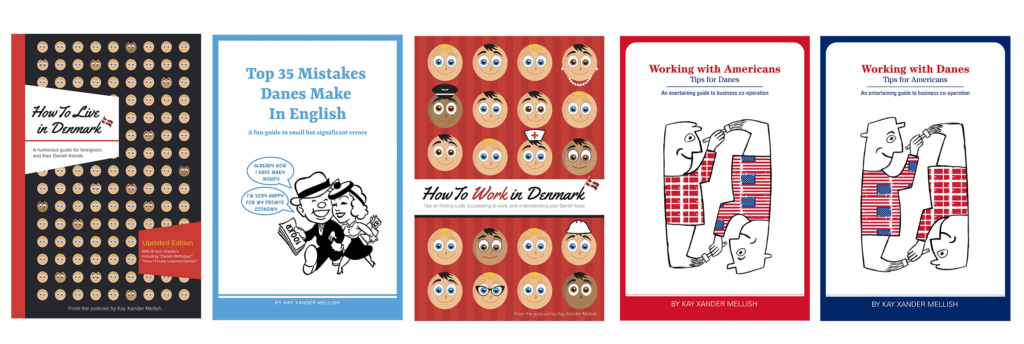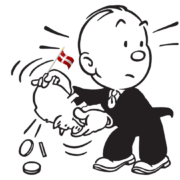Looking for jobs in Denmark Part 1: Fine-tuning your approach to the Danish job market
I get a lot of email at How to Live in Denmark from people looking for jobs in Denmark, and I can spot definite patterns based on nationality.
Indians and Pakistanis, for example, tend to send me mails full of numbers and data: “I have 6 years of IT experience and an Msc in Chemical Engineering. What is my expected first-year salary and what will be my living standard based on that salary?”
Left-wing Americans like to pour out their frustrations at the capitalist excesses of their home country, and then ask how quickly they will be eligible for Danish social services like free college tuition. (One single mom from the U.S. had three children she was looking forward to educating at the Danish taxpayers’ expense).
Correspondents from Eastern Europe want to know if they really have to learn Danish, no doubt because in addition to their native language they’ve already had to learn English (which they generally speak well) and sometimes Russian or German.
You are not a red Lego brick
Internationals in general are often trying to look for a job in a way that works well in their home country, not Denmark.
Basically, this works as about as well as trying to tell your new girlfriend the same jokes that made your old girlfriend laugh. If the setting is Denmark, the approach has to be Danish.
Danish jobs are all about independence and teamwork. It’s not like they need a red Lego brick and you have to convince them you’re a red Lego brick to get the job. The employer has a problem that needs solving and you have to convince them that you have the brains and the experience to solve it, and the drive to make it happen.
“Foreign workers can’t think for themselves.”
The Danish workplace has a flat structure, which means you’re unlikely to find a position in which a boss tells you to do something and you do it, and then the boss tells you do to something else and you do that. In Denmark, a boss is more of a coach or team leader type figure. He or she gets power not from a position or a title, but by being able to rally the people in a team to do good work.
When Danish employers talk about international workers behind their backs they often whisper, “They can’t think for themselves.” Danish companies are looking for people who can take the initiative and solve problems without being told what to do every step of the way.
If you want a job in Denmark, you need to show that you understand a company’s needs, and can come up with some fresh ideas to help them address those needs. You have to show up with a lot of ideas and enthusiasm, and act like you’re not just looking for a job, but a challenge.
How do you know what a company needs?
Your first stop in learning about any field in Denmark is the union for that field. In a lot of countries, trade unions are just for old-fashioned professions, like train drivers and factory workers, but in Denmark they’re popular among lawyers, doctors, and engineers.
Figure out the right union for your field and visit their website. You’ll find a lot of information about which companies work in that field, often in English, as well as invitations to networking events and workshops.
If you need to transfer professional qualifications from your home country, the union can tell you about how that’s done. And once you have a potential employer interested in you, your union can help you negotiate a contract with your employer and make sure you’re getting a fair deal.
So, use Google and find out who your union is in Denmark. Important point: a union is called a fagforening, which is different from an A-kasse, although a lot of times they’re run by the same group of people. (Unless you’re already in Denmark as a student, you don’t need an A-kasse until you have a Danish job.)
Reading the Danish trade press
Your second stop is the trade press about your field. For example, in the IT field, it’s ComputerWorld.dk; for engineers, its Ingeniøren.dk; if you’re in advertising, check out Bureaubiz.dk .
A lot of this press is in Danish, so get busy with Google Translate. See what companies are in your field, who’s doing well, who is firing people. Find out if there are certain skills in your field that Danish companies need, and then market yourself as having those skills.
For example, I recently read an article about how the new head of the national police wants to increase anti-hacking capabilities. A smart job applicant could get in touch with the cops and highlight his or her IT security experience. When you know what an employer needs, you can highlight that aspect of your experience when you approach them.
Show off your expertise on social media
Many of the articles in the Danish trade media allow for comments, which is a great way to show off your expertise if you know a lot about a certain field.
I recently met an Iranian solar engineer looking for work in Denmark. I suggested that he set up a Google Alert so he’s notified whenever there are new articles in the Danish press about the solar energy business, and then make short, information-rich comments on them that show off his expertise – using his real name, of course.
By discussing projects he’s already worked on and giving useful information on how they turned out, or adding input on the best use of materials or techniques, he’s showing people in the Danish industry that he has something valuable to offer. He’s building himself into a brand name that people will seek out and want to hire.
Double-check your English
Commenting in English is fine – but it should be very good English. When I write in Danish, I always cut and paste the text into a Microsoft Word document to check for major spelling and grammar errors; you can try the same technique for English.
If someone responds to your comment, thank them and add additional information if you can, and then send them a connection request on LinkedIn – personalized to say how you know their name and what value you can offer them if they connect. (Never send the standardized connection request. I get dozens of these every day, some of them from fraudsters, and I just delete them.)
Looking for jobs in Denmark
The goal is to build a network and build yourself as a brand name in your industry. Denmark needs people with your expertise: now you just have to show people the expertise you have. And you can start doing this before you even arrive in Denmark.
[icon name=”facebook-square” class=”fa-3x”] [icon name=”twitter-square” class=”fa-3x”][icon name=”instagram” class=”fa-3x”]
Buy Kay’s books about Denmark on Amazon, Saxo, Google Books, Apple Books, Barnes & Noble Nook, or via our webshop.
Image mashup copyright Kay Xander Mellish [current_year]
Read more:
Decoding your Danish pay slip and understanding your Danish taxes
How to handle a Danish business meeting
What to wear to work in Denmark: Quiet colors, quality cut and fabric
Your first day at work in Denmark: Handshakes, passwords, and several people named Mette
Trailing spouses and working in Denmark
Motivating Danish employers: Tips for foreign managers
Networking in Denmark: 5 useful tips for making Danish business contacts
Secrets of socializing with your Danish colleagues
The Danish art of taking time off
Your free daily banana and five weeks off: Job benefits in Denmark
Why job titles aren’t that important in Denmark
The Danish job interview
Job search in Denmark: Your Danish cover letter plus LinkedIn plus two magic words
Job hunting in Denmark: Putting together your Danish CV
Finding a job in Denmark: Some tips from my experience
Is joining a union a waste of money? And what is the difference between a union and an A-kasse?
Will I ever be promoted? Plus, how to leverage your annual review
Taking sick days in Denmark, plus how to deal with stress










Very good and helpful article.
Thanks for all the info Kay! As I have been in the past ( on 2016 ) in Denmark as a student intern at Copenhagen University and now as a MSc student at DTU, I can say that I totally get what you’re trying to point out with this well written article.
I really thank you for your input and it means a lot to have your real-life experience expressed through your articles. I feel that they help me a lot! Tusind tak, du er venlig!